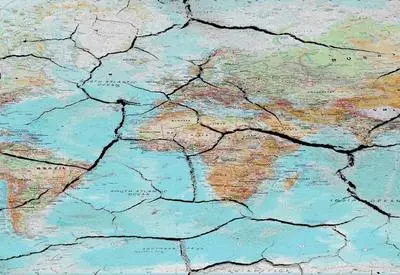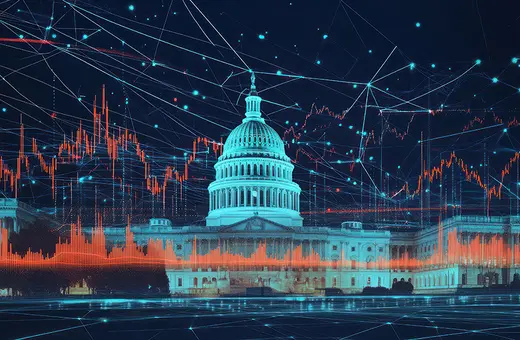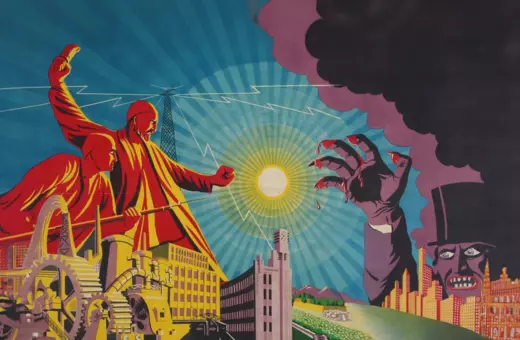It’s a truth that’s increasingly staring us in the face: Liberal democracies seem unable to take the necessary steps to prevent further, potentially catastrophic climate change. If we continue our consumption of fossil fuels along the current trajectory, the political conflicts and disruption that will emerge will call for emergency politics and the temporary suspension of constitutional rights. We need to stop pretending we can hold on to both constitutional, liberal democracy and prevent further ecological catastrophe – we need to think of alternatives now, argues Larry Alan Busk.
In the two decades since the enactment of the Patriot Act, the concept of the “state of exception” has become common parlance in the humanities and social sciences. We know it as the temporary suspension of constitutional rights and civic safeguards in the name of an emergency political situation. Under normal circumstances, the story goes, we live in a society of laws, but sometimes a crisis necessitates an ad-hoc bracketing of these laws in order to preserve society itself—bending the rule of law to make sure that it doesn’t break.
 SUGGESTED READING
What economists get wrong about climate change
By Steve Keen
Overwhelmingly, the connotation surrounding the phrase “state of exception” is negative: liberals concerned about civil liberties can condemn it alongside radicals like Agamben, who sees the ‘normal’ functioning of government as a permanent state of exception. Indeed, there is much to regret in the history of emergency constitutional suspension, most notoriously the internment of Japanese-Americans following Pearl Harbor.
SUGGESTED READING
What economists get wrong about climate change
By Steve Keen
Overwhelmingly, the connotation surrounding the phrase “state of exception” is negative: liberals concerned about civil liberties can condemn it alongside radicals like Agamben, who sees the ‘normal’ functioning of government as a permanent state of exception. Indeed, there is much to regret in the history of emergency constitutional suspension, most notoriously the internment of Japanese-Americans following Pearl Harbor.
Less often recognized or discussed, however, are those instances where emergency politics seem like a good idea in retrospect. While we rightfully condemn the Roosevelt administration’s racism, do we have the same attitude when it comes to other aspects of its exceptional state policy, like the wave of (temporary) industrial nationalizations in aid of the war effort? Even the Trump administration (‘a broken clock…’) enacted the Defense Production Act during the Covid-19 pandemic to mandate that ventilators continue to be produced even at a loss for the companies, something not generally accepted during normal circumstances. Would anyone—besides perhaps Agamben—deny that this was the right decision? ‘Shelter in place’ orders are also of dubious constitutional legitimacy under normal circumstances, but were they not prudent and necessary as the pandemic broke?
___
___
This raises difficult questions about the relationship between the judicial and the extrajudicial. It was this issue that preoccupied the analytically best (and morally worst) theorist of emergency politics, Carl Schmitt. A century ago, Schmitt argued that constitutions inevitably contain clauses allowing for their own suspension in times of crisis. So, bracketing or even dissolving the constitution when necessary is, strictly speaking, constitutional. To Schmitt’s mind, the fundamental question is: who decides when such a suspension is ‘necessary,’ and on what grounds? A constitution cannot do that by itself. Constitutional government, then, is not the rule of law, but ultimately the rule of the person or persons who decide when the law no longer applies.




















Join the conversation